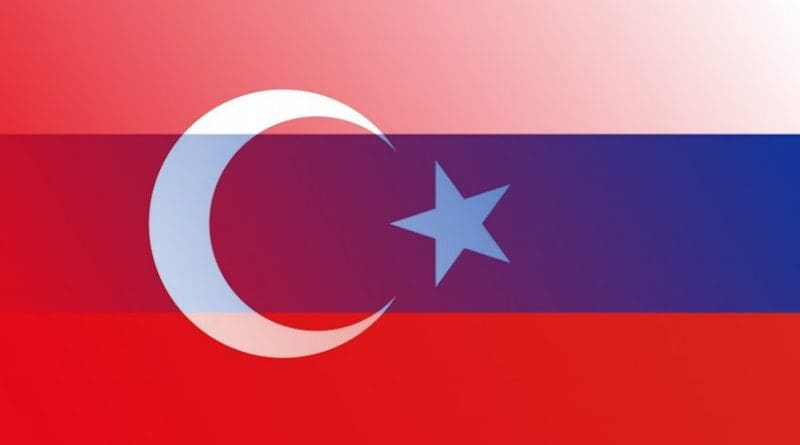Diplomatic Tensions Between Ankara And Moscow As A Window Of Opportunity – Analysis
By IPRIS
By Paulo Gorjão*
When the Turkish Air Force shot down a Russian warplane in Syrian territory, after violating its airspace, on November 24, Turkey’s President could not have imagined the repercussions that would follow this military incident. The Russian President’s response was to sign a decree imposing a package of economic sanctions on Turkey. Subsequently, on the margins of the Paris Climate Summit, Vladimir Putin adopted an even more intransigent stance and snubbed any meeting with Recep Tayyip Erdogan aimed at easing diplomatic tensions. Considering the course of events over the last few days, it seems clear that Putin wants to teach Erdogan an unforgettable lesson.
A week after the incident, Putin reasserted he has “every reason to think that the decision to shoot down our plane was dictated by the desire to protect the oil supply lines to Turkish territory, right to the ports where it is loaded onto tankers”. The Russian President added that he has “received additional information which unfortunately confirms that this oil, produced in areas controlled by the Islamic State and other terrorist organizations, is transported on an industrial scale to Turkey”. In response, Turkish President Recep Tayyip Erdogan said, “if you allege something you should prove it”.1
Meanwhile, Russia’s Deputy Defense Minister Anatoly Antonov followed suit and said that Moscow has evidence showing that Erdogan and his family are involved in illegal oil trade with the Islamic State and personally benefit from it.2 The Turkish President vehemently denied those allegations and said that the opposite was true.
As such, bilateral relations between Russia and Turkey continue to deteriorate, and, at least for now, the prospects for improvement in the future are not bright. Naturally, regardless of whether Erdogan is involved or not in illegal oil trade with the Islamic State, that, however, is not a negligible and unimportant detail. Irrespective of his involvement, it is an open secret that the bulk of Islamic State’s oil extracted in Iraq and Syria is exported through Turkey. In other words, it is an incontrovertible fact that Turkey is not doing everything in its power — quite the contrary — to disrupt oil transportation routes from ISIS-controlled Syrian and Iraqi oilfields.
It is true that, with the exception of the anonymous population, there are no innocent angels in the Syrian conflict. Turkey and Russia have their own national interests and strategic agendas, as the European states, the United States and Middle Eastern countries also have. That being said, the build-up in political and military tensions between Ankara and Moscow is not necessarily bad news from the European point of view in particular, even though it carries considerable risks for the Atlantic Alliance.
At the very least, Turkey will have to relinquish its diplomatic ambiguity. Russia’s intense diplomatic pressure deprives Erdogan of strategic autonomy and will require, at least in theory, a certain degree of diplomatic clarification. Instead of a paramount and nearly exclusive concern with the Kurdish component of the conflict, one of the indirect consequences of political tensions with Moscow is exactly that it will force Ankara to have a greater commitment in the fight against the Islamic State, including its funding mechanisms, with a particular focus on its oil transportation networks.
By shooting down a Russia warplane, Turkey may have bitten more than it can chew. Although we know how the diplomatic crisis between Ankara and Moscow began, we are still far from knowing how and when it will end. Meanwhile, European states should get the most out of this window of opportunity and exert pressure on Erdogan so as to boost Turkey’s contribution, in a more efficient and substantive way, in the fight against the Islamic State. There are no free lunches.
About the author:
*Paulo Gorjão, researcher at Portuguese Institute of International Relations and Security (IPRIS).
Source:
This article was published by IPRIS as IPRIS Viewpoints 190 (PDF)
Notes:
1 Vince Chadwick, “Russia: Turkey shot down plane to protect ISIL oil trade” (Politico, 1 December 2015).
2 Maria Tsvetkova e Lidia Kelly, “Russia says it has proof Turkey involved in Islamic State oil trade” (Reuters, 2 December 2015).

